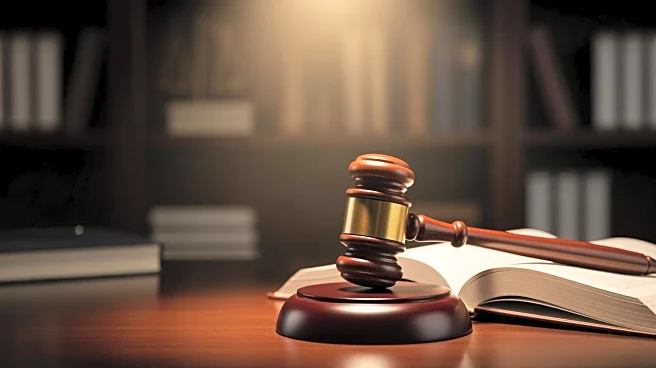What's Happening?
Louisiana State University (LSU) has been given the green light by the court to continue its investigation into law professor Ken Levy, who was suspended after making comments about President Trump and Governor Jeff Landry in front of students. Levy's
suspension from teaching was an interim decision by LSU President William Tate, which did not affect Levy's tenure rights, employment, or pay. The controversy began when a student reported Levy for his remarks, leading to a series of court rulings that have favored LSU. The university is considering potential job actions, including termination, against Levy.
Why It's Important?
This case raises significant questions about free speech rights within public institutions. The decision to investigate Levy for his comments could set a precedent for how universities handle similar situations, potentially impacting the academic freedom of professors. The case also highlights the financial implications for LSU, as it continues to allocate resources to pursue the investigation. The broader implications for free speech and academic freedom are critical, as they affect not only faculty but also students' rights to hear diverse viewpoints.
What's Next?
LSU may proceed with further disciplinary actions against Levy, including possible termination. The case could prompt reactions from academic and civil rights groups concerned about free speech and academic freedom. The outcome may influence policies at other universities regarding faculty speech and the balance between institutional reputation and individual rights.
Beyond the Headlines
The investigation into Levy's comments could have long-term effects on the culture of free speech in academia. It may lead to increased self-censorship among faculty, fearing repercussions for expressing political opinions. The case also touches on the ethical considerations of using university resources for investigations that may be perceived as politically motivated.

















